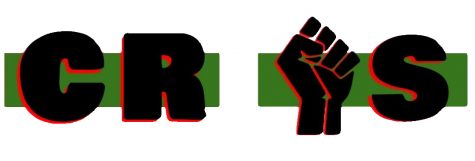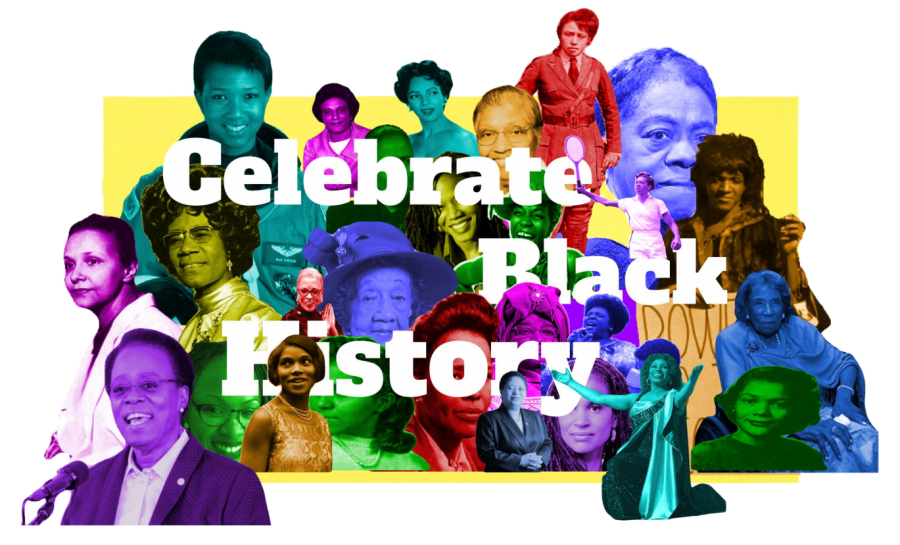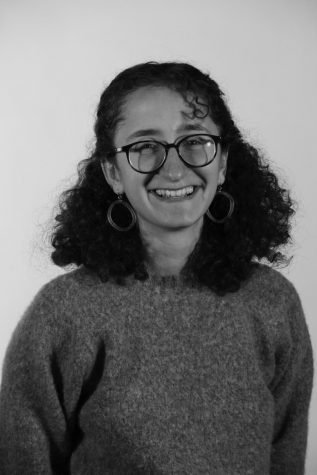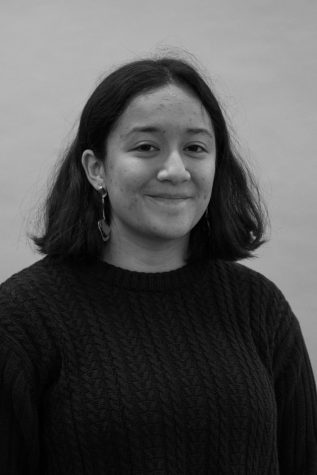Celebrating Black History
Highlighting black women often left out of history books, the “RF” Illustrations Editor included women such as LGBT activist Marsha P. Johnson and doctor Jane Wright.
March 2, 2019
Black History at CRLS
The Pearl K. Wise Library kicked off the month with the “Black Authors Are Real” (or, “Black His & Her Stories Month”) display. Senior Jessica Paul and librarians Ms. Houston and Ms. Boninti reversed all the books by non-black American writers, leaving only a fraction of the spines visible. This display demonstrated the lack of representation of authors of color in the publishing industry. Ms. Houston commented, “We wanted to make a statement that [showed] support of the students that said, ‘We see you, we hear you, [and] we recognize you.’”
The CRLS library also hosted the “Open Mic and Poetry Series” on Tuesday, February 5th, featuring 2019 Boston Poet Laureate Porsha Olayiwola. For more information, see “Showcasing CRLS Poetry” on page 4.
For the past decade or more, AVID (Achievement Via Individual Determination) coordinator Leslie Davis has gotten on the intercom every day of February to celebrate Black History Month. Ms. Davis gathers facts about famous figures, provides clues, and reveals them in what resembles a guessing game—a fun way to start the day and learn about black history.

Black Student Union Gets Involved
This year, the CRLS Black Student Union (BSU) organized seven events and presented three pieces of media to celebrate Black History Month, putting out more content for the CRLS community than ever before. Across the country every year, Black History Month is celebrated throughout February to honor and celebrate black creators, intellectuals, innovators, and shed light on black history in the face of racism, white supremacy, and discrimination in the United States.
On February 6th, BSU hosted “Desks” with special guests Cambridge Police Department Commissioner Bard Jr. and Superintendent Christine Elow. One in a series of “Desks” conversations, students and adults discussed topics relevant to black people. This particular conversation centered around the question: “Is it enough to know my rights to live?”
Black History in Cambridge
In an event organized jointly by the Cambridge Public Library and BSU students on February 6th, Mahdi Ibrahim ’19, Alia Farah ’19, and Liz Teffera ’20 read several books relating to black youth and identity to kids, then led a discussion about what it means to be black. “It was so amazing to hear kids talk so candidly about blackness and have them exposed to Black History Month through the BSU at such a young age,” stated Ibrahim.
On February 9th, nine BSU members spoke at the NAACP Cambridge Branch Martin Luther King Jr. Brunch, reading impactful and applicable quotes from black leaders, including MLK Jr. The event honored women of color, with Congresswoman Ayanna Pressley as the keynote speaker.
During the week of February 25th, an NPR news segment was published on senior Hermella Kebede’s education initiative, “Arc 2021: K-12 Anti-racism Curriculum in Cambridge by 2021.” Kebede developed this curriculum as her senior thesis and connected with NPR through BSU. According to Kebede, this provides “concrete steps [to be] implemented so that those around me won’t be hurting as much as those who have left or will be leaving in a few months.”
This piece also appears in our February 2019 print edition.











